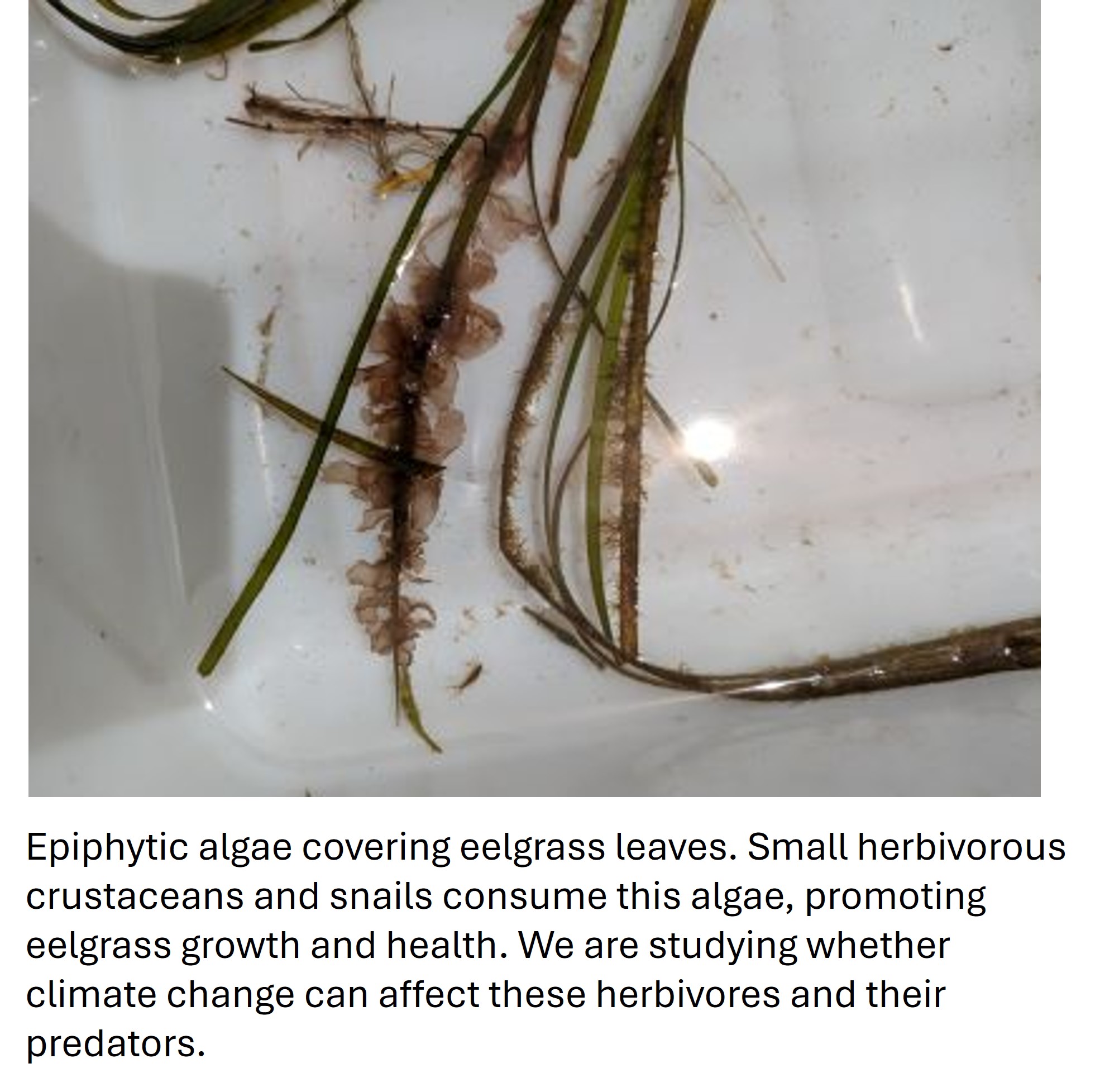News & info about our latest research projects
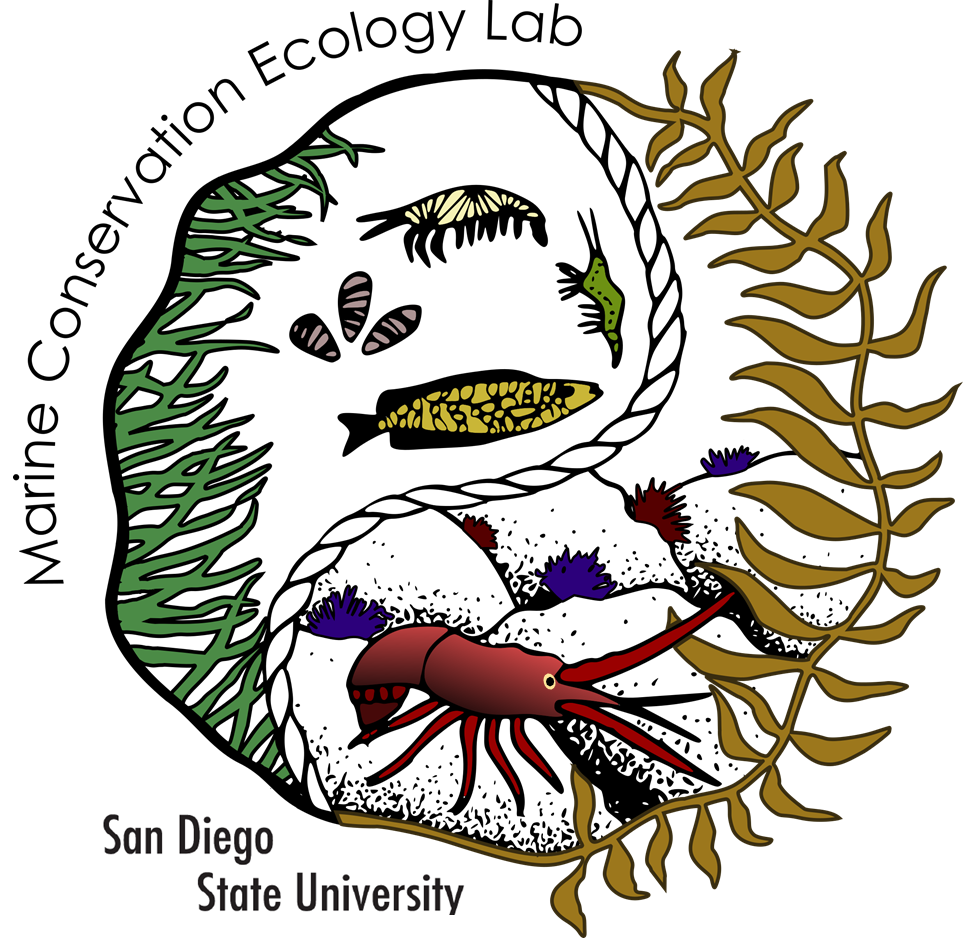
Congratulations to our students on the following accomplishments!
- Jessica Griffin is graduating with her PhD and moving on to a distinguished postdoctoral position with Northeastern University and The Nature Conservancy! This new position will allow Jessica to continue her work on seagrass ecology and conservation, and work with some of the field’s scientific leaders.
- Gulce Ozturk received a highly competitive Fulbright Scholarship to continue her work in marine ecology and conservation in Turkey. Gulce also received a CSU COAST Kenneth H. Coale Graduate Scholar Award to help fund her work on abalone behavior and conservation.
- Lily Jorrick, a 2nd year Master’s student, received a coveted NSF Graduate Research Fellowship and a CSU COAST Kenneth H. Coale Graduate Scholar Award to fund her research on seagrass ecology.
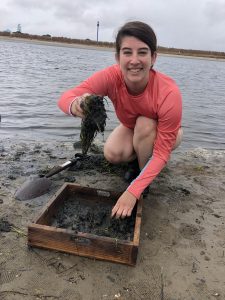


Research updates: behavior and conservation of white abalone Haliotis sorenseni
To prevent further biodiversity loss and conserve endemic species, biologists often rely on captive breeding and transplanting to supplant wild populations; for instance, hatcheries worldwide outplant juvenile fishes and aquatic invertebrates to areas experiencing population decline. However, these focal species typically experience high predation mortality shortly after stocking due to behavioral differences between captive bred and wild conspecifics. The lack of ecologically relevant stimuli and growing conditions, such as structurally complex habitat and predator cues, may explain behavioral differences that pose concerns for the success and efficacy of restoration programs. Graduate student Gulce Ozturk is studying how white abalone, a highly endangered species in Southern California, can be conditioned in the juvenile stage to recognize threats from predators. With this research, Gulce hopes to improve survival rates of juvenile abalone outplanted to the kelp forest.
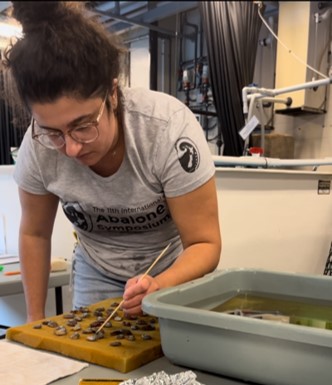
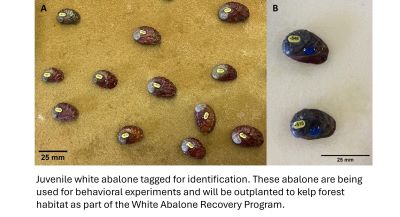
Research updates: the effects of ocean acidification on species interactions in seagrass habitat
A new research grant from the National Science Foundation’s Biological Oceanography Program is funding our lab’s partnership with Dr. Kathy Boyer’s research team at San Francisco State University. Together, we are studying how ocean acidification (OA) affects the interactions among predator and prey species in California’s eelgrass (Zostera marina) habitat. These top-down forces play a significant role in the growth of eelgrass and the algae that grows on eelgrass leaves which can limit eelgrass production. In an ongoing lab experiment, we are manipulating seawater OA levels in outdoor mesocosms containing different combinations of predators (small fishes), prey (crustacean herbivores such as amphipods and shrimp), and eelgrass density.
